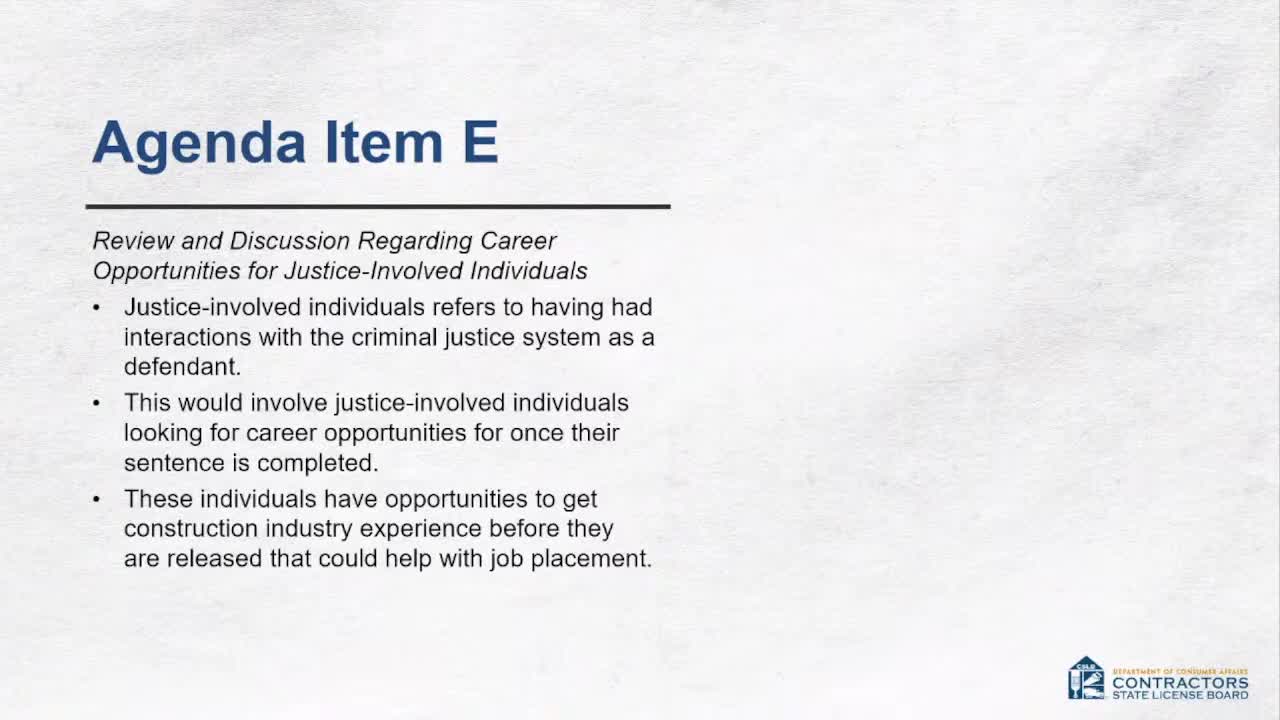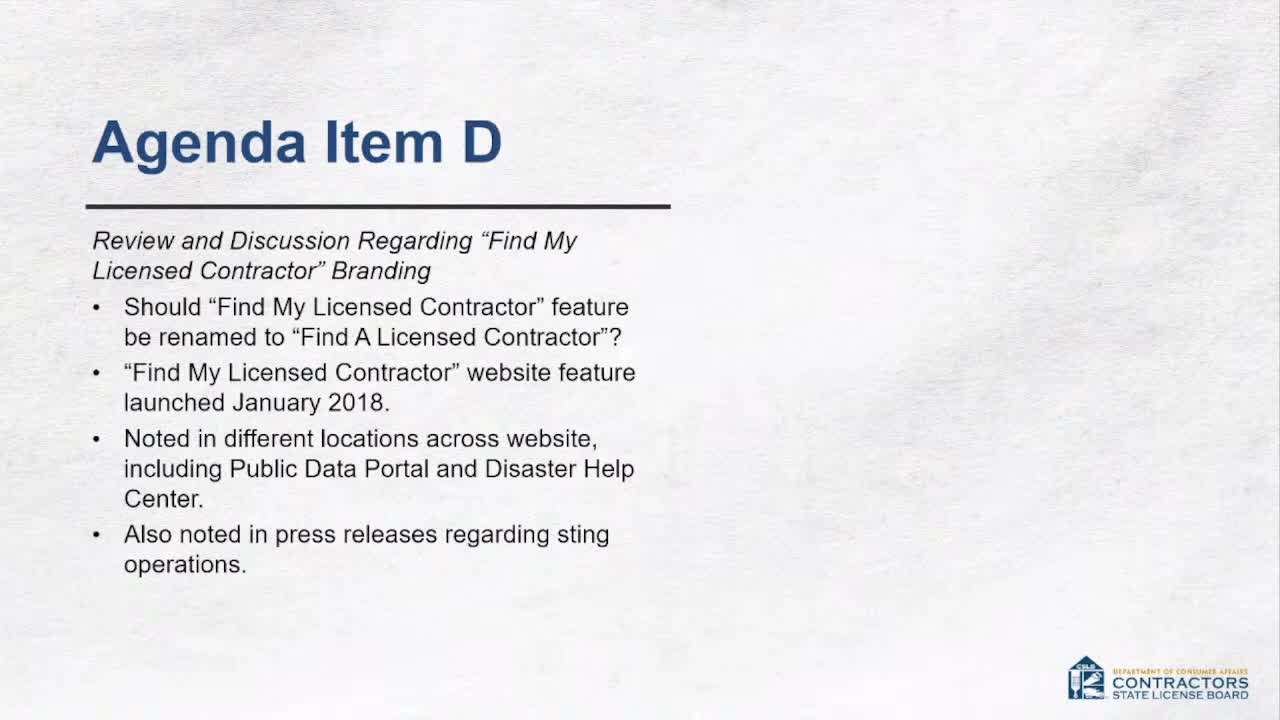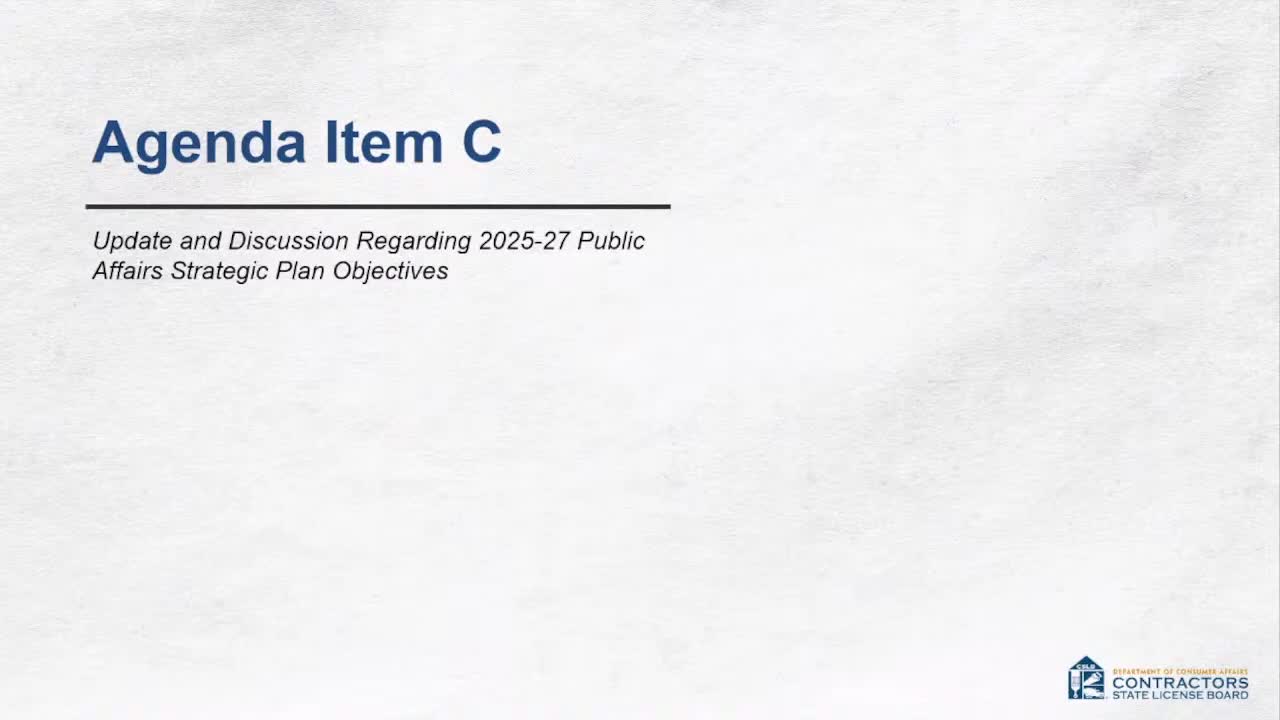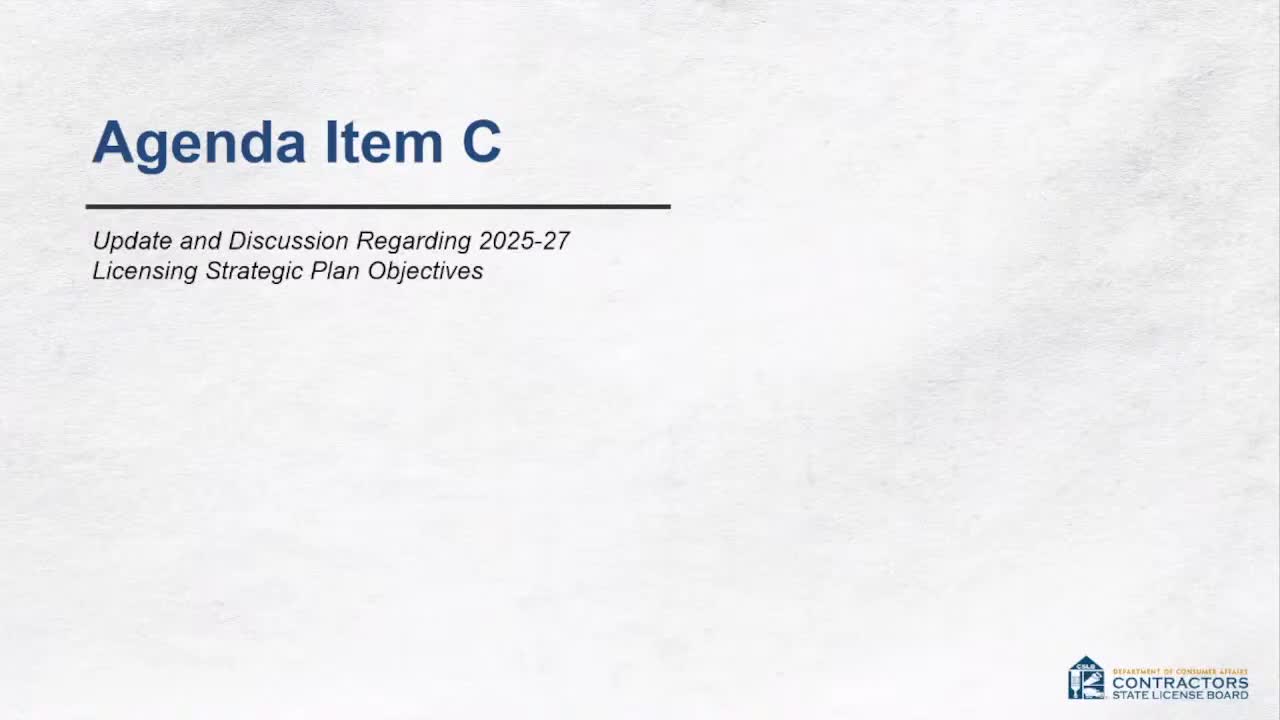Article not found
This article is no longer available. But don't worry—we've gathered other articles that discuss the same topic.

CSLB discusses pathways to construction careers for justice-involved individuals and licensure eligibility rules

CSLB committee debates renaming "Find My Licensed Contractor" to "Find a Licensed Contractor" to reduce confusion

CSLB public affairs reports plain-language edits, website updates and wildfire disaster help center improvements

